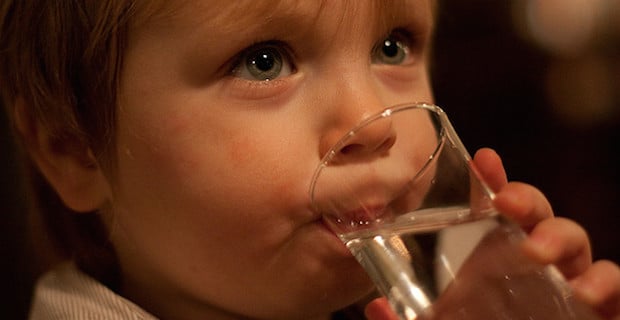
“More than 99 percent of your body’s molecules are water molecules, so water matters,” says Gerald Pollack, Ph.D., water researcher and author of "The Fourth Phase of Water: Beyond Solid, Liquid, and Vapor". He added, “Ignoring the kind of water you drink is as illogical as ignoring the kind of food you eat.”
That’s why it’s critical for us to be drinking pure, clean water. If you think tap or even bottled water is clean, you’d be mistaken.
In 2008, an investigation by the Associated Press showed that America’s tap water, coast to coast, is contaminated with a vast array of prescription and over-the-counter drugs, including antibiotics, pain medications, antidepressants, sleeping pills and sex hormones. This is happening because when people take pills, their bodies absorb some of the medication, but the rest is flushed down the toilet and water treatment plants can’t remove pharmaceutical residues with current technology in place.
Scientists are concerned that even in small concentrations these drugs could harm us over time because water is consumed in such large amounts every day. Also, “there’s no national strategy to deal with this issue and there are no effective mandates to test, treat, limit or even advise the public,” reports the AP.
If you’ve switched to bottled water in hopes of avoiding the perils of drinking tap water, consider this:
In a major study by the Natural Resources Defense Council that compared 1,000 bottles of different water brands, several of the brands contained dangerous chemicals, bacteria and even arsenic. Also, plastic water bottles are bad for the environment. Eight out of 10 plastic water bottles used in the U. S. become garbage or end up in a landfill, contributing to global warming. They’re also found in our oceans as small bits of plastic that fish and birds mistakenly eat because they look like krill.
5 Things You Should Know about Drinking Water:
1. A chemical used in pesticides and weed killers (Dichlorophenol), is also the same chemical used in chlorinating drinking water.
2. About one third of the bottled water tested contained significant chemical or bacterial contamination-exceeding levels allowed under state or health standards.
3. Scientists have found the longer a plastic water bottle sits on a shelf, whether in a grocery store or your refrigerator, the higher the risk you’ll consume a greater dose of a chemical called antimony, a potential carcinogen.
4. It is estimated that about 25 to 30 percent of the bottled water sold in America comes from a city or town’s tap water-sometimes further treated, sometimes not. To find out if your bottled water comes from city tap water, check the bottle label or the cap-if it says “from a municipal source” or “from a community water system”, this means it’s derived from tap water.
5. No one is keeping an eye on the bottled water industry. There’s minimal to no regulation. For example, the FDA doesn’t regulate any water that’s bottled and sold in the same state.
My recommendation is to get a good water filter system for your drinking water at home and fill up glass or metal water bottles when on the go.
Image: zeus1642
Written by Beth Greer for The Green Divas.




